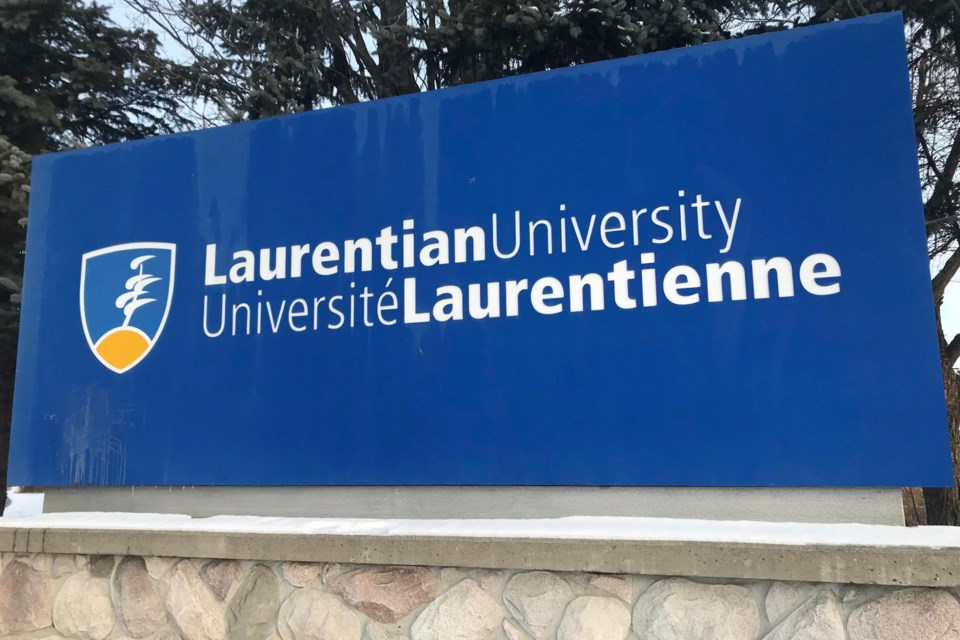Given possible changes to in-camera and closed door meeting rules at Laurentian University’s senate amid reported concerns about media coverage, the president of LU’s faculty union has a few concerns of his own.
“I'm not sure what they're trying to achieve, but I wouldn't like to see less transparency emerging from that exercise,” said Fabrice Colin, president of the Laurentian University Faculty Association (LUFA) and a non-voting member of LU’s senate.
He said this is especially concerning in the wake of the university’s 2021-2022 journey under insolvency.
The report on LU’s insolvency by former Ontario Auditor General Bonnie Lysyk mentioned the word “transparency” 21 times, and she complained about the lack of transparency from former members of Laurentian’s administration, Colin said.
Last week, Sudbury.com reported that Laurentian will be bringing forward new bylaw changes to its senate to develop “developing clear, transparent guidelines about when a discussion might move into closed session or in camera.”
The bylaws for Laurentian’s senate (see item No. 8) already state that “all meetings of Senate shall be open, except that they may be closed by a vote of Senate or by a ruling of the Speaker.”
A discussion about media coverage of the LU senate took place in the Nov. 26 senate executive (SENEX) committee meeting. Minutes of that meeting were published as part of the package for the Jan. 21 senate meeting.
From those high-level minutes, the consensus seemed to be that members want certain topics brought into closed session to avoid reporting by the media.
Under the topic labelled “possibility for in-camera sessions (or closed sessions),” Laurentian president Lynn Wells spoke at the Nov. 26 meeting about “local media recording and using words spoke (sic) at senate.
“There has been some concern about speaking freely in senate because of this,” Wells said, according to the minutes. “Do we bring items in-camera to avoid this situation? If supported, when would be a good time to start?”
Sudbury.com is the only local media outlet that regularly covers these meetings.
Colin said this characterization of media coverage surprised him.
“To me, it’s good news that there’s interest from the community and the media for the debates of our academic senate,” he said. “I don’t know how many other senates in the country are followed by media, but I would guess that this number is not very high, and it’s good to have an interest of the community and the media.”
Although this situation may be unusual, he added that in talking to colleagues in other parts of Canada, there are also issues of transparency at their institutions.
Colin said there are times it’s clearly necessary to go in camera, but in his opinion, they should be minimized.
“Even when there's a dispute or there's a lack of clarity about whether an item should be put, you know, in camera or not, my position would be that we should err on the side of more transparency,” he said.
Colin said he’s curious to see what exactly will be proposed in terms of new in-camera and closed meeting rules. He said changes to the senate bylaws would have a high threshold, and would require half of voting members to be in favour.
In asking about the situation, Sudbury.com received the following written statement from Laurentian last week, attributed to Wells.
"Laurentian is modernizing its governance practices to strengthen the university's governing bodies and to ensure alignment with best practices,” the president said in her written statement.
“This includes developing clear, transparent guidelines about when a discussion might move into closed session or in camera. We recently completed this work with the Board of Governors, and those changes have since been endorsed by the Auditor General of Ontario.
“Closed sessions and in camera discussions are an important part of governance practice, especially when governance bodies are discussing documents that are subject to change, may contain information that is incomplete, or could reveal confidential information about the University's competitive position. In those circumstances, it's reasonable to move into a closed session or in camera.”
Heidi Ulrichsen is Sudbury.com’s assistant editor. She also covers education and the arts scene.
